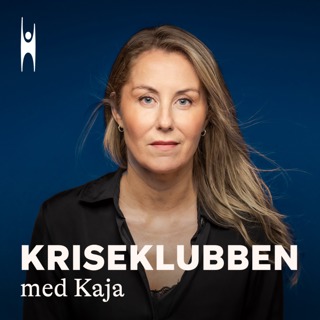
230. Bart Ehrman — Did the Christmas Story Really Happen? The Birth of Jesus in History & Legend
Michael Shermer speaks with renowned biblical scholar and historian, Bart Ehrman, about: how we know Jesus existed and was crucified; how these questions are different epistemologically from those about Jesus’ resurrection and the claim that he died for our sins; how Christians deal with the trinity problem: How can God, Jesus, and the Holy Spirit be one and the same and yet separate and different? (“God sacrificed himself…to himself…to save us from himself.” How is this possible?); How Christians answer these questions: Why did Jesus have to suffer and die? Why couldn’t God just forgive us for our sins?; Why was the virgin birth so important to early Christians? Why was the resurrection so important to early Christians? Anti-Semitism in the early Christian church (“the Jews killed Jesus” or “the Jews killed God”) and why it makes no theological sense (Jesus was Jewish, and if he had to die to save us from our sins, whoever killed Jesus should be thanked); why Jews and Muslims do not believe that Jesus was the messiah; how Jesus became God and how Christianity grew from a few dozen followers at the time of Jesus’s death to over two billion followers today; theodicy and the problem of evil: Why does an all powerful, all knowing, all good God allow people to suffer?
27 Nov 20211h 7min

229. Fritjof Capra on Patterns of Connection: Is there a Tao of physics? Is life a web? Is humanity at a turning point?
Michael Shermer speaks with scientist, educator, activist, and accomplished author, Fritjof Capra, about the evolution of his thinking over five decades. In this conversation, based on Capra’s book, Patterns of Connection, Shermer and Capra discuss: what it means to be spiritual in an age of science, nuclear energy and why Capra thinks we don’t need it and Shermer thinks we do, 50 years of progress or regress, limitations of models and theories of reality, limitations of analogies between western physics and eastern mysticism, mind and consciousness, and why Capra is hopeful for the future of humanity.
23 Nov 20211h 36min

228. Steven Koonin on what climate science tells us, what it doesn’t, and why it matters, based on his book Unsettled
According to Steven Koonin, when it comes to climate change, the media, politicians, and other prominent voices have declared that “the science is settled.” Koonin avers that the long game of telephone from research to reports, to the popular media, is corrupted by misunderstanding and misinformation. Koonin says that core questions about the way the climate is responding to our influence, and what the impacts will be remain largely unanswered. Koonin acknowledges that the climate is changing, and he claims the whyand how aren’t as clear as you’ve probably been led to believe, and what the impacts will be remain largely unanswered. In this engaging conversation Michael Shermer challenges Dr. Koonin with many of the most common critiques of his book, Unsettled: What Climate Science Tells Us, What It Doesn’t, and Why It Matters, and Steven Koonin responds by drawing upon his decades of experience — including as a top science advisor to the Obama administration.
20 Nov 20211h 37min

227. Richard Nisbett on Thinking & Reason
In this wide-ranging conversation Shermer and Nisbett discuss Nisbett’s research showing how people reason, how people should reason, why errors in reasoning occur, how much you can improve reasoning, what kinds of problems are best solved by the conscious mind and what kinds by the unconscious mind, and how we should think about intelligence, along with the controversies over group differences and genetic influences on I.Q. scores and why Charles Murray (The Bell Curve) is wrong in inferring genetic causes for group differences in I.Q.. Nisbett also shows that self-knowledge can be dramatically off-kilter and points to ways to improve it, and demonstrates how different cultures have radically different ways of reasoning and feeling, and how this led to his most famous research showing the difference between Northerners and Southerners in rates of violence, the culture of honor, and a hair-trigger for slights and insults. The two also discuss the #metoo, BLM, antiracism, and woke movements today in context of his psychological research.
16 Nov 20212h 14min

226. Suzanne Nossel on defending free speech for all, based on her book Dare to Speak
Online trolls and fascist chat groups. Controversies over campus lectures. Cancel culture versus censorship. The daily hazards and debates surrounding free speech dominate headlines and fuel social media storms. In an era where one tweet can launch — or end — your career, and where free speech is often invoked as a principle but rarely understood, learning to maneuver the fast-changing, treacherous landscape of public discourse has never been more urgent. In Dare to Speak: Defending Free Speech for All, Suzanne Nossel, a leading voice in support of free expression, delivers a vital, necessary guide to maintaining democratic debate that is open, free-wheeling but at the same time respectful of the rich diversity of backgrounds and opinions in a changing country. Shermer and Nossel discuss: private vs. government restrictions on speech; hate speech, libel, slander, compelled speech; incitement to violence and insurrection; cancel culture; social media censorship; the euphemism treadmill, and more…
13 Nov 20211h 35min

225. Nancy Segal — Deliberately Divided: Inside the Controversial Study of Twins and Triplets Adopted Apart
In the early 1960s, the head of a prominent New York City Child Development Center and a psychiatrist from Columbia University launched a study designed to track the development of twins and triplets given up for adoption and raised by different families. The controversial and disturbing catch? None of the adoptive parents had been told that they were raising a twin — the study’s investigators insisted that the separation be kept secret. The details of what happened, until now, have been lost to the archives of history. In this conversation based on her new book, Nancy Segal reveals the inside stories of the agency that separated the twins, and the collaborating psychiatrists who, along with their cadre of colleagues, observed the twins until they turned twelve. Interviews with colleagues, friends and family members of the agency’s psychiatric consultant and the study’s principal investigator, as well as a former agency administrator, research assistants, journalists, ethicists, attorneys, and — most importantly — the twins and their families who were unwitting participants in this controversial study, are riveting.
9 Nov 20211h 46min

224. Bobby Duffy on The Generation Myth: Why When You’re Born Matters Less Than You Think
Boomers are narcissists. Millennials are spoiled. Gen Zers are lazy. We assume people born around the same time have basically the same values. But, do they? Michael Shermer speaks with social researcher Bobby Duffy who has spent years studying generational distinctions. In The Generation Myth, he argues that our generational identities are not fixed but fluid, reforming throughout our lives. Based on an analysis of what over three million people really think about homeownership, sex, well-being, and more, Duffy offers a new model for understanding how generations form, how they shape societies, and why generational differences aren’t as sharp as we think.
6 Nov 20211h 50min

223. Paul Bloom on the pleasures of suffering and the meaning of life
We go to movies that make us cry, or scream, or gag. We poke at sores, eat spicy foods, immerse ourselves in hot baths, run marathons. Some of us even seek out pain and humiliation in sexual role-play. Why do we so often seek out physical pain and emotional turmoil? Where do these seemingly perverse appetites come from? In his latest book, The Sweet Spot: The Pleasures of Suffering and the Search for Meaning, Bloom aims to understand how people find meaning in their lives, and, moreover, to explore what he calls, “the sweet spot” — the proper balance between pleasure and suffering. As one of the world’s leading psychologists, drawing on groundbreaking findings from psychology and brain science, Bloom shows how the right kind of suffering sets the stage for enhanced pleasure.
2 Nov 20212h 24min




















